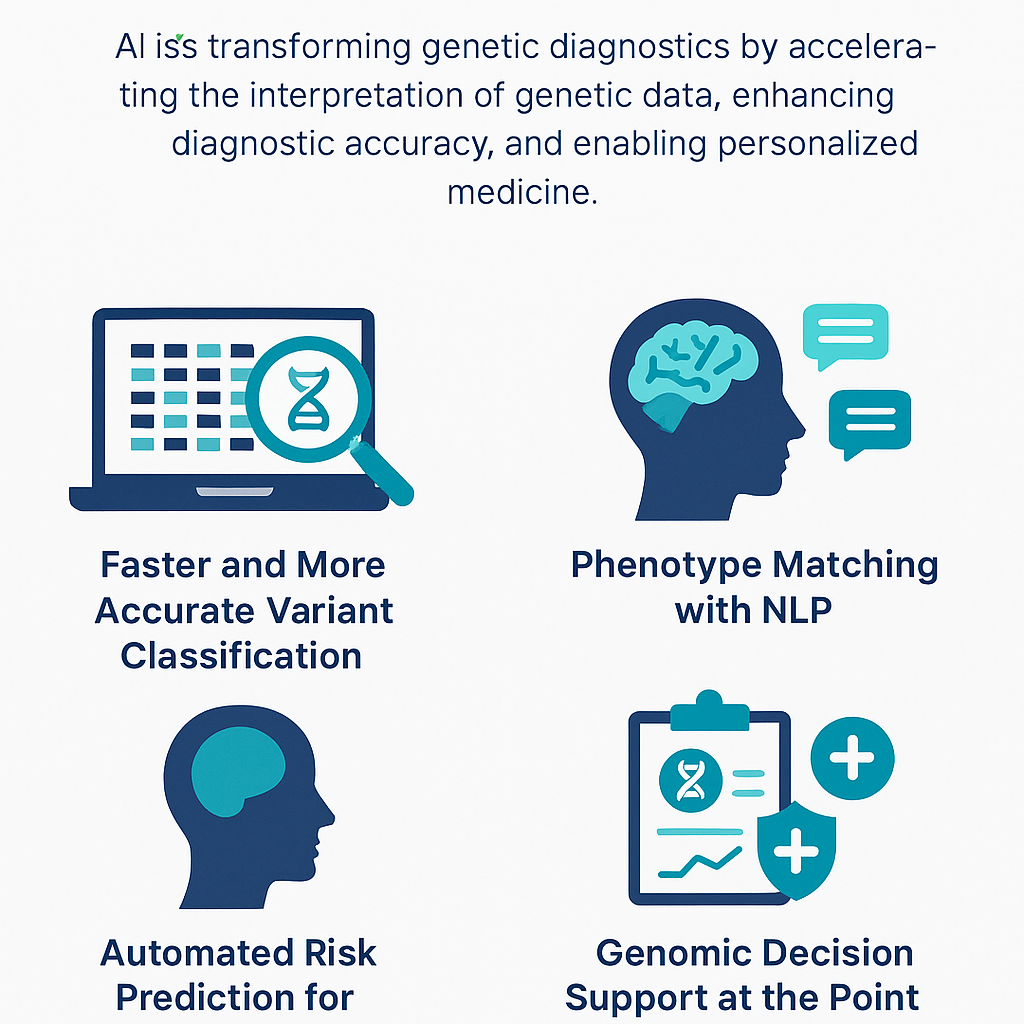
How AI is Revolutionizing Genetic Diagnostics
For decades, genetic diagnostics have held the promise of uncovering the molecular roots of disease, offering hope for earlier detection and more accurate treatment. But traditional approaches have often been slow, expensive, and limited in scope. Now, artificial intelligence (AI) is transforming th
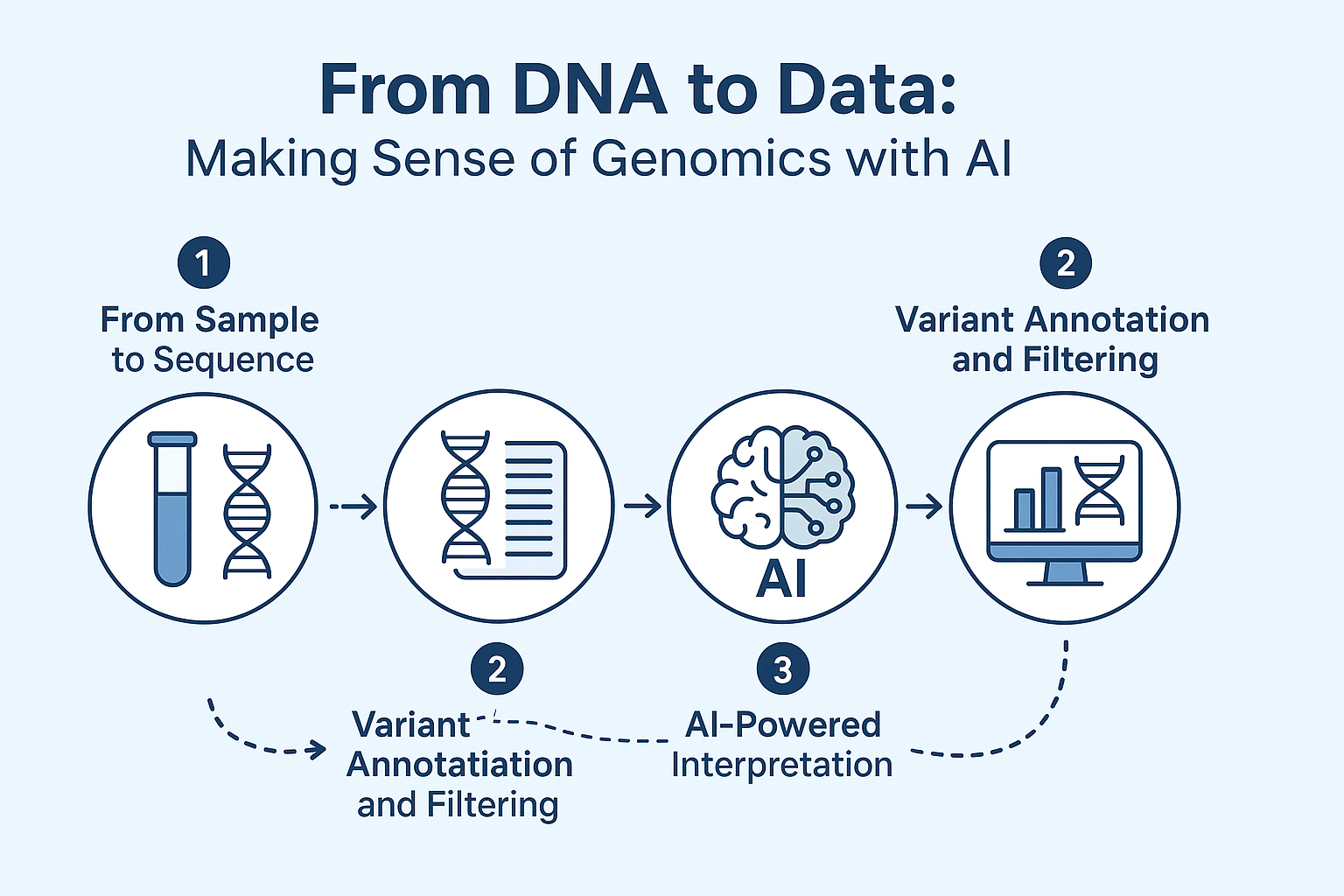
From DNA to Data: Making Sense of Genomics with AI
The human genome contains over 3 billion base pairs—an ocean of biological information that holds the key to understanding disease, drug response, ancestry, and much more. But sequencing DNA is just the beginning. The true challenge lies in interpreting that data, connecting it with health outcome
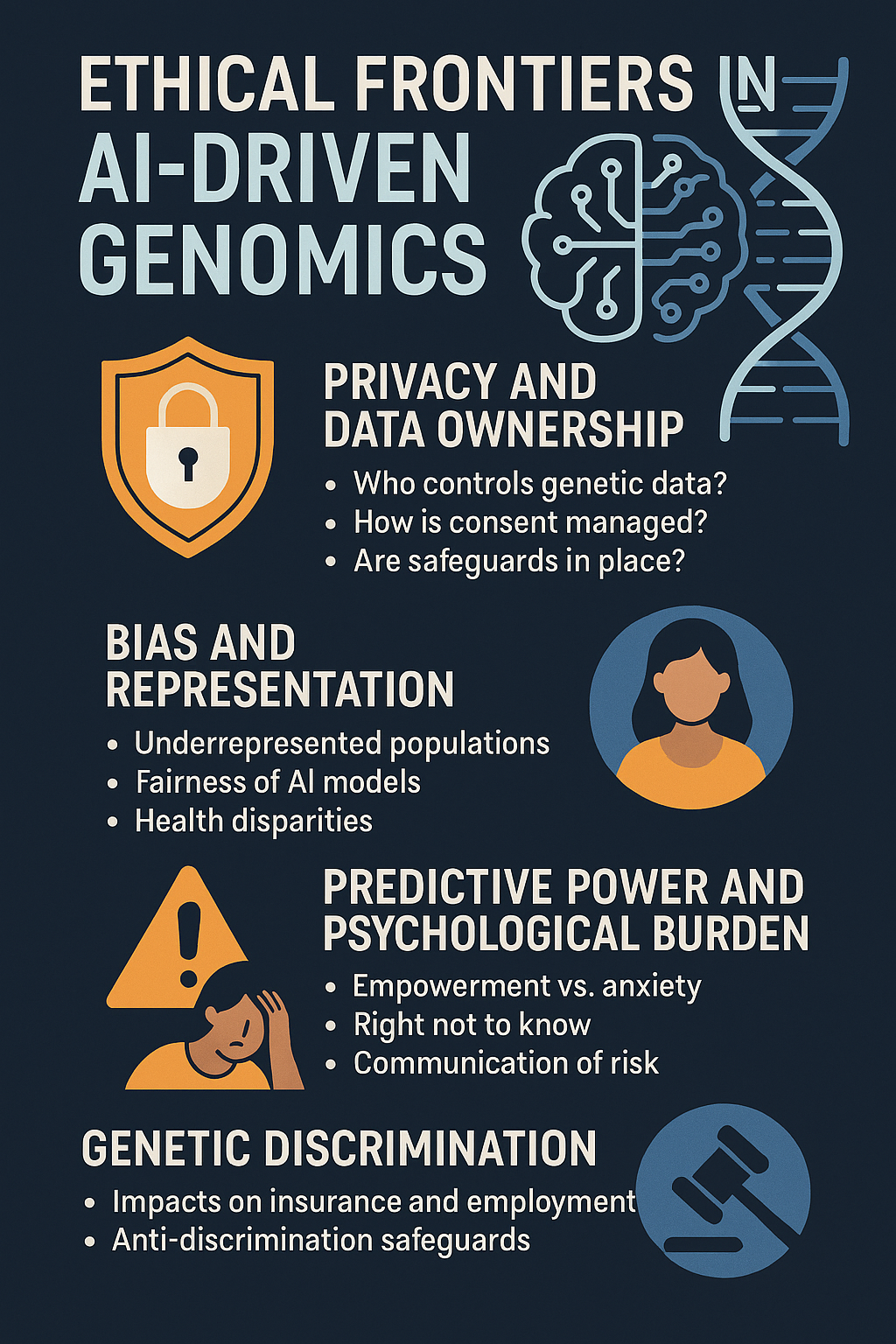
Ethical Frontiers in AI-Driven Genomics
The fusion of artificial intelligence (AI) and genomics has opened a new era in healthcare—one filled with promise, but also with profound ethical challenges. As we gain unprecedented power to analyze genetic data, make predictive health decisions, and tailor treatments with machine precision, we
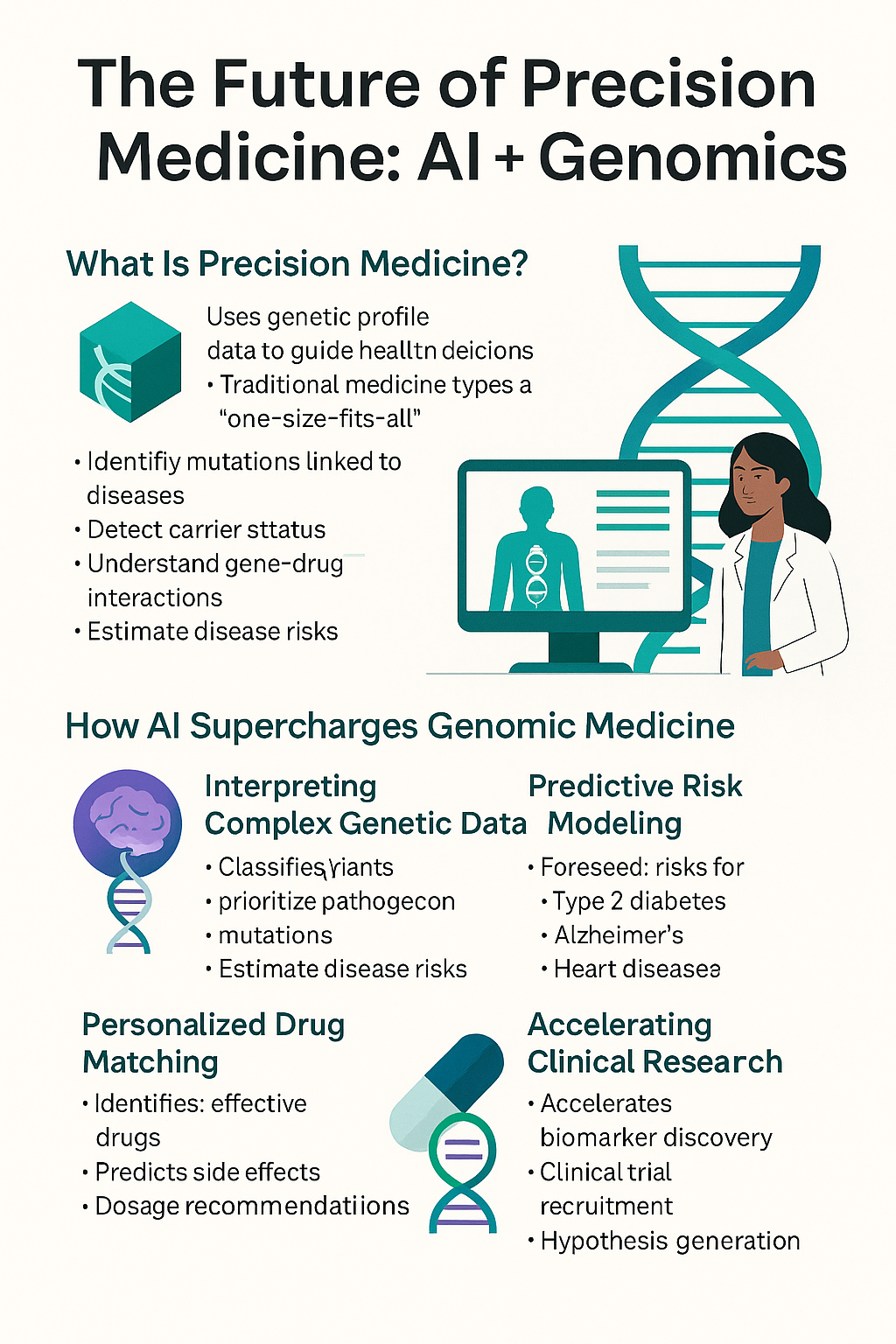
The Future of Precision Medicine: AI + Genomics
Imagine walking into a clinic and receiving a personalized treatment plan based not just on symptoms—but on your unique genetic code. This is not science fiction. Thanks to advances in artificial intelligence (AI) and genomics, we’re entering the era of precision medicine, where care is tailored
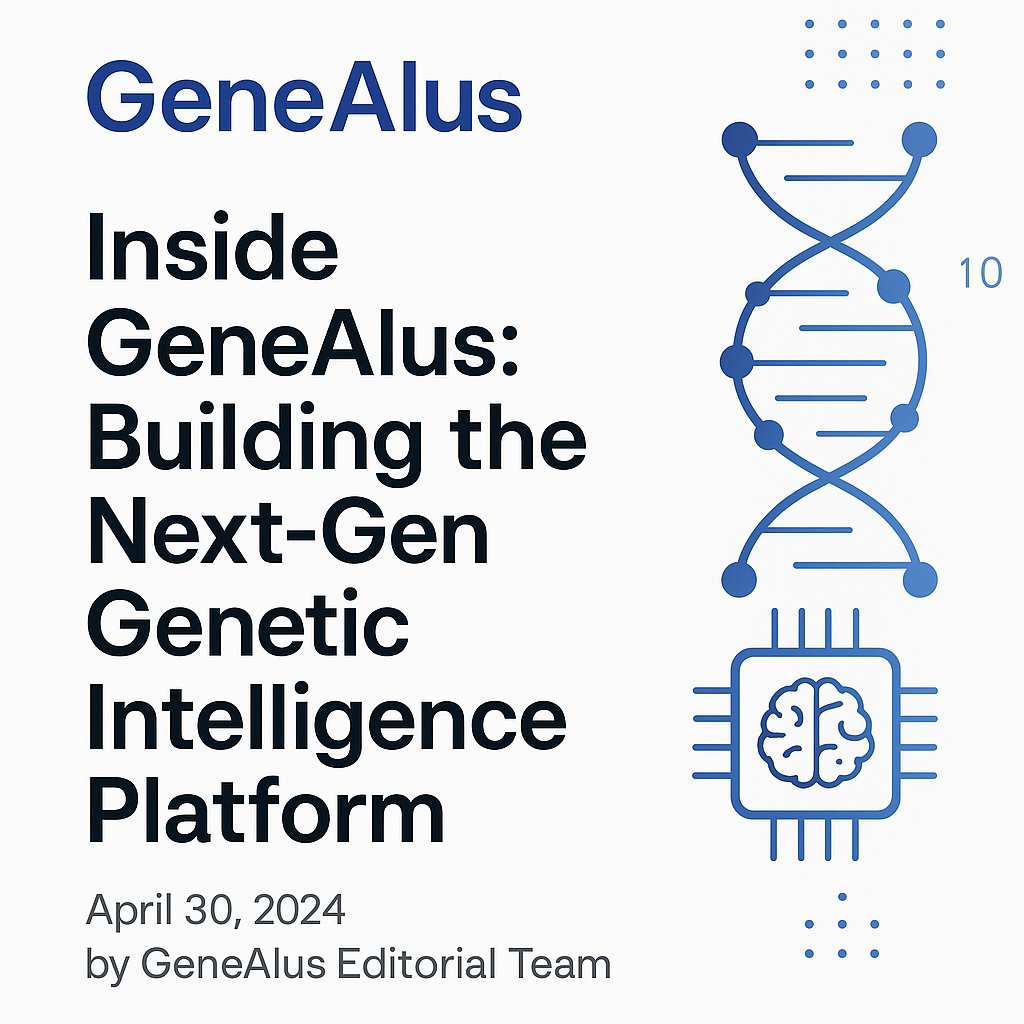
Inside geneAIus: Building the Next-Gen Genetic Intelligence Platform
The future of medicine is personal, predictive, and precise—and genetics is at the core of that evolution. But raw genomic data is incredibly complex. Unlocking its potential demands more than sequencing machines; it requires intelligence. That’s where geneAIus comes in. Founded by a team of hea
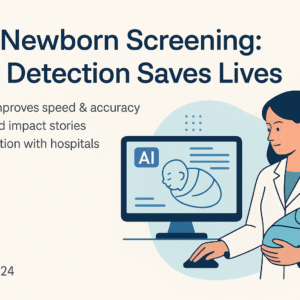
AI in Newborn Screening: Early Detection Saves Lives
Every year, millions of newborns undergo routine screening to detect rare but serious genetic and metabolic disorders. These early checks are vital: detecting a condition within days of birth can be the difference between lifelong health and irreversible complications. But what if we could do this f

